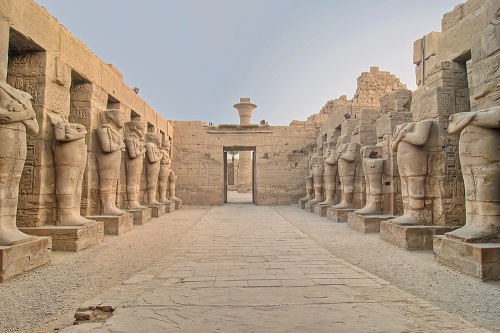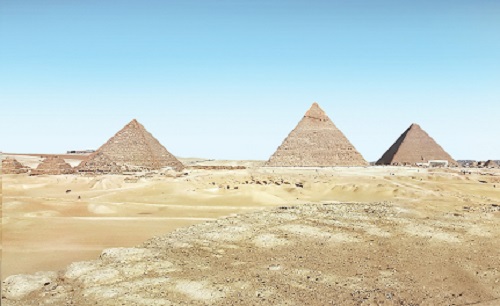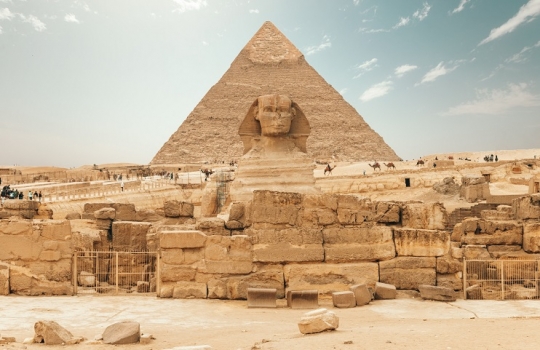If you are planning to give birth in Egypt, then you need to decide whether to take out private health insurance, or to pay out of pocket costs for your maternity care. Although Egypt does have a national health scheme, in practice very few locals, let alone expats, use it. This is due to the lengthy waiting times, the shortage of qualified personnel, poor patient outcomes and more. As well as this, the Egyptian government is launching an overhaul of the scheme – including mother and baby programmes, in an attempt to reduce infant mortality – and it is not intended that it will continue to apply to expats. Luckily, there are some excellent Western-style private hospitals in the country, so you will have plenty of options in the private sector.
How to decide on a birth plan
A birth plan is a list of things that you would like to have happen during labour and immediately afterwards. You may want to write one, so that your doctor can understand your wishes and expectations. Things to consider when writing your birth plan include:
• Where do you want to give birth?
• Who do you want to have with you (e.g. your partner)?
• What kind of birth do you want (e.g. vaginal birth or a Caesarian)?
• Do you need any birthing aids?
• Do you want pain relief, and if so, what kind?
• What kind of birthing environment would you prefer?
You should be able to find a doula in the larger cities and, as we shall see below, there are a number of clinics in Cairo and Alexandria that offer assistance with birth plans. You will be able to discuss your plan with your public or private hospital of choice.
You should be aware that the number of C-sections in Egyptian hospitals, including in the private sector, has risen considerably over the last decade. This is often attributed to the fact that C-sections are charged at a higher rate. In saying this, research in the private sector suggests that mothers themselves have been requesting C-sections in order to avoid some of the pain and complications of labour. If you want to have a vaginal birth, therefore, you should make this clear to your obstetrician and the hospital staff on your maternity ward.
You should also check if your chosen maternity unit offers epidurals and what forms of pain relief are available.
There is a growing trend among Egyptian women to give birth at home rather than in hospital, and Egyptian midwives are permitted to give oxygen to women in labour. Mothers-to-be are encouraged to have a backup plan, however, in case hospitalisation is required. Home births are much less medicalised than births in hospital, so if this appeals to you, then it is worth discussing the option with your GP and midwife. You may be able to have a birthing pool.

Egyptian maternity care
There are a number of private hospitals in Egypt that have maternity units, and these overall have a good reputation. Even so, a number of expat mothers recommend giving birth in your home country, if you are from a Western nation. It is reported that maternity units in public hospitals are not currently anywhere near Western standards, and are best avoided. The government is seeking to improve matters, but the healthcare system has not yet caught up.
You will need to discuss your options with your GP and subsequently your obstetrician. For instance, you will need to decide whether you want your partner to stay with you overnight. Costs will vary depending on your individual requirements.
Despite the limitations of the public system, most private hospitals have up-to-date facilities to a Western standard. The El Nada, for instance, has an infection control unit, a neonatal care unit, a blood bank and its own laboratory facilities.
We looked at some sample prices from a range of private hospitals, including the Rofayda Health Park, Nozha International Hospital, the Queen’s Royal Hospital, the El Nada Hospital and the American Hospital. Below are some price ranges for various services:
• Normal labour: LE 10,000 – LE 19,000 (US$639 – US$1215)
• C-section labour: LE 7500 – LE 13,500 (US$480 – US$864)
• Additional room per night: LE 1,600 – LE 2150 (US$102 – US$137)
• Partner accompanying you overnight: LE 700 (US$45)
These are basic prices for a single room. Costs can rise substantially, however, depending on the type of room you choose. A C-section in a deluxe room can, for example, cost upwards of LE 17,000 (US$1087). An additional night’s stay in a suite can cost LE 2450 (US$156). It is worth noting, however, that these costs are extremely competitive compared to the private sector in the West.

The Osana Family Wellness Centre runs mother and baby classes, as well as pregnancy and postnatal workshops, to support new mothers. They also offer doula services, nutrition, lactation and fertility consultations. Mum’s Haven in Alexandria offers:
• Pregnancy physiology, exercises for birth and nutrition
• Comfort measures, emotions and hormones
• Stages of labour and birth options
• Birth complications, gentle cesarean and creating a birth plan
• Postpartum recovery, breastfeeding and new parenthood
• Waterbirth and birthing empowerment
The Amani organisation also trains teachers in both Cairo and Alexandria to provide birthing classes, which are specifically tailored to those wanting to have natural births.
Will the baby be an Egyptian citizen?
Your child will only have Egyptian citizenship if their father is Egyptian. There is no naturalisation process. Your spouse will not automatically be made an Egyptian citizen either, even if you yourself are granted citizenship.

